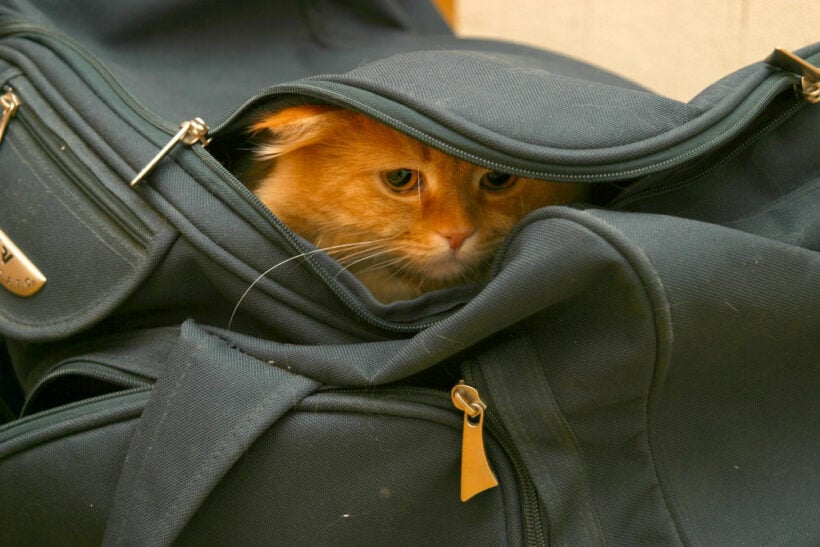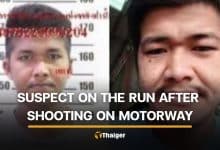Can the Thai government put the cat back in the bag?

OPNION
Who will be better at engaging a broad audience on social media? An incumbent conservative government run by former Army general and career politicians? Or a young, nimble, motivated group who are intuitive when it comes to using the modern online platforms?
This is the current pickle for Thailand’s government, under the leadership of PM Prayut Chan-o-cha and his ruling Palang Pracharat party. Their latest attempts to engage Thailand’s social media crowd with some rousing music and flag-waving have been met with derision. More about that later.
The government is being forced to react to the swell of protests, around the country, whilst having to face unprecedented times – managing a world pandemic and finding ways to bolster the struggling economy.
In the past Thai governments have usually stepped in and used their police and army wings to break up protests, sometimes violently. The Prayut government has already made it clear they don’t want to resort to using force to quell the current protest movement.
But the current list of demands from protesters includes topics that, in the past, have been simply taboo. This time, sensing a generational ‘pivot’ in the Thai psyche, the protesters are making demands for reforms to the institution of Thai Head of State.
Under the previous Thai monarch, King Bhumibol Adulyadej, the subject was rarely broached, even in private. Certainly not in public. But now, after human rights lawyer Anon Nampa questioned the institution and its role in Thailand, the proverbial “cat is out of the bag”.
The things being said, openly at protests around the country, cannot be unsaid. And whilst the Thai government has so far taken a conciliatory tone towards the protesters, they have flagged the Thai Monarchy as a “no go” zone and not up for discussion.
The protesters, too, risk losing a wider support from Thais by bring up the topic. Whilst the current Thai Head of State doesn’t appear to draw the same level of “love” to that poured on his revered father, the institution remains sacrosanct amongst vast swathes of Thais, at every level of society.
In an awkward attempt to tackle the younger protesters “on their home turf”, the government’s Public Relations Department funded the production of 2 music clips that were uploaded onto YouTube – “Thong Chart” (The National Flag) and “Rak Borisut Rak Jak Mae” (Innocent Love from Mum). Comments on both YouTube and Twitter criticised the content of the “Thong Chart” lyrics as “inappropriate”.
“Having seen the Thai national flag these days, tears almost spill for pitying the Land. For how long have Thai people forgotten their patriotism, letting the tri-colour flag droop forlornly?”
Despite lots of evocative music, Thai flags wafting in the breeze in slow motion and messages from Thai ‘mothers’ urging their children not to participate in the protests, it didn’t go well. Both clips received over 99% ‘thumbs down’ clicks with plenty of criticism to pepper the comments section. It didn’t take long for the PRD to take down the clips which just ended up as a magnet for critics to voice their concerns.
After 6 years of Prayut Chan-o-cha’s leadership, first under the military coup of the NCPO, and then as a mandated PM in the “elected” government of March 2019, Thais are wondering when “Uncle Tu” is going to deliver on his promises of economic prosperity, re-unification and equality.
Instead, there appears to be a constant harassment of political opponents and dissidents, a clear economic downturn (not all their fault of course), “stacked” trials and contracts favouring the junta’s business supporters. The inequity remains (broadly split into the ‘Bangkok elite’ and ‘everyone else’, mostly the agrarian northeast and north).
The problem for any attempts at democracy, over the past 30 years at least, is that ‘everyone else’ always win a fair vote because, well, there are just a lot more of them. These newly elected governments have a shelf life only as long as the ‘elite’, supported by the Thai Army, allow them to function before launching another coup – there have been 12 military coups since 1932 when Thailand become a constitutional monarchy with democratically elected governments.
But this latest situation is very different from the past, both in the ruling government’s reserve (let’s hope it lasts) to refrain from violent suppression of the protests, and the list of demands. And this time there are cameras live streaming the events with the world watching.
This time ‘the world’ is an important audience because, at some stage, it will be the tourism industry that will drag Thailand out of its current recession. With a reliance of up to 20%, directly and indirectly, on tourist income to push up the GDP, the Thai government are smart enough to know that they want to project Thailand’s “safe and stable” image, and not images of the police and army suppressing young protesters.
For now the Thai government have packed away their video cameras and rousing music and will need to have a fresh think about engaging the protesters, and their prickly demands. Now that the cat is well out of the bag, what can they do to either tame it, or get it back in the bag?
(No cats were harmed in the writing of this story)
Latest Thailand News
Follow The Thaiger on Google News:


























